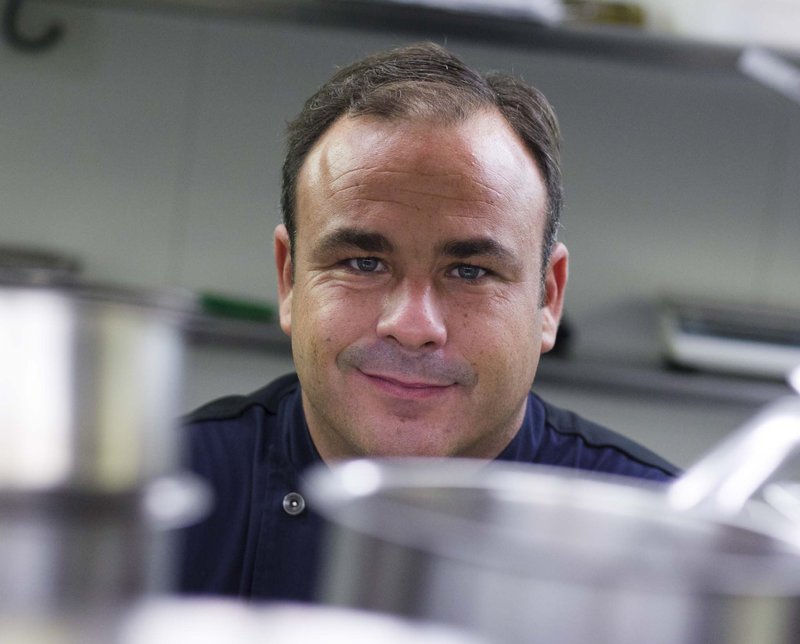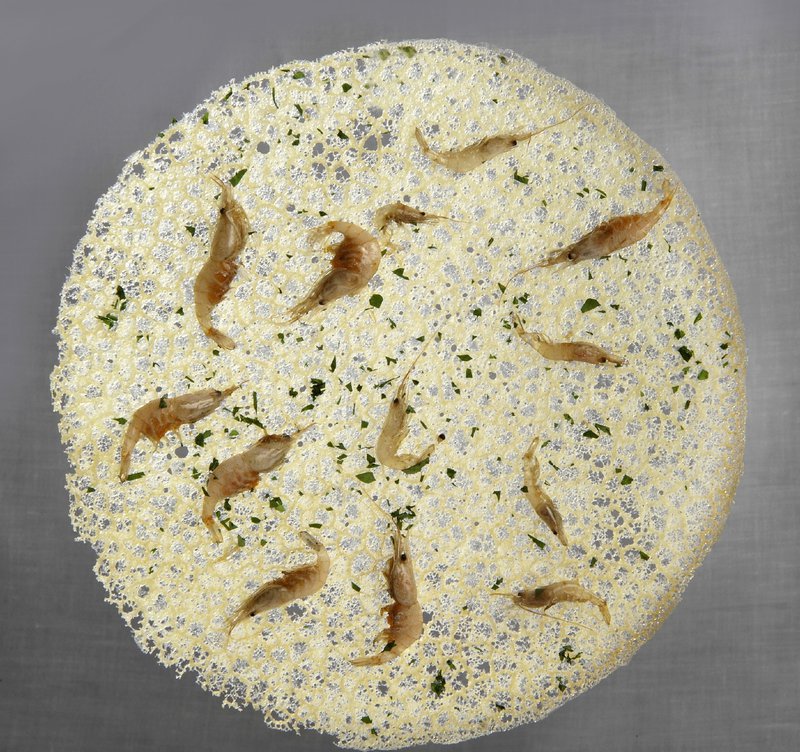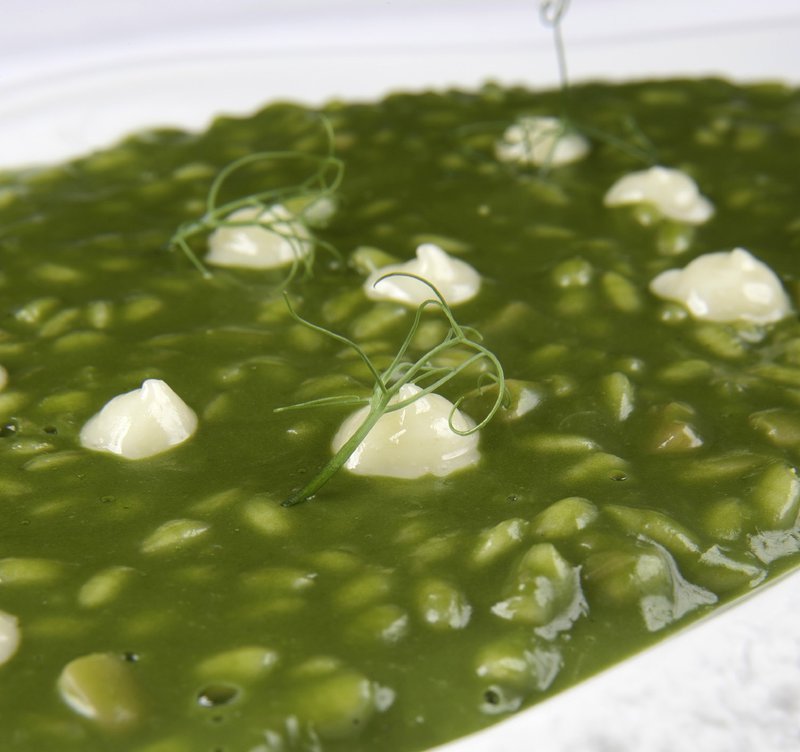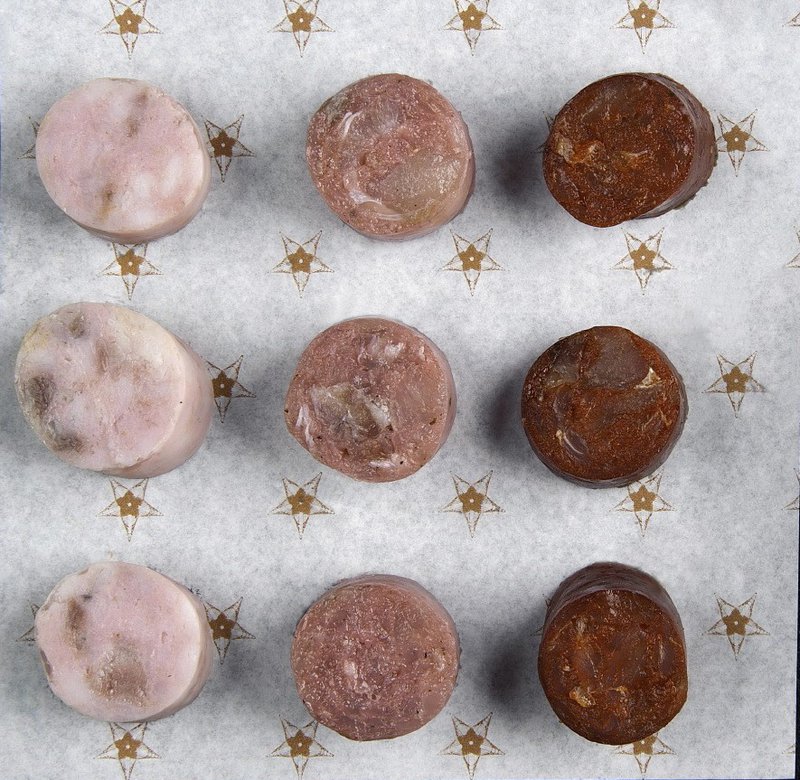Ángel león
Chef
'I will never get tired of the sea'
Famous for his exclusive seafood dishes, including plankton, León is now ready to begin a new Mediterranean venture by opening the Bistreau restaurant in a Barcelona hotel
Ángel León is in the luxury hotel Mandarin Oriental on passeig de Gràcia. He is opening a restaurant, the Bistreau, where he will offer classic and original seafood dishes from his Aponiente restaurant in Puerto de Santamaría on the Bay of Cádiz. The chef denies that he is nervous, or as he puts it “nerves are for the bad things, not for the good things.”
How do you feel about changing the Atlantic for the Mediterranean?
The Atlantic is my ocean for cooking but I know a lot about species from other seas. The Mediterranean is not new for me, I have sailed on it and it is not so different from back home. What is a great challenge is to cook from this sea from Catalonia.
Why did you accept the challenge?
I liked the Mandarin Oriental hotel before I got to know Barcelona. It is a chain of world renown hotels with great food. Moreover, coming to Barcelona, where I've had great eating and living experiences in my life seemed a marvellous idea. I value its location on the coast, its relationship with the sea. I would never start anything in a city that wasn't on the sea.
You say that if you had to choose between cooking and the sea, you would choose the kitchen.
I already liked fish when I was little, but the sea came first. The sea is the best place to escape to when you are fed up. It allows you to think, dream, breathe. There is no mobile cover there, or emails, or anything. I will never tire of it.
You spent time in boats as a boy, with your father, who was a doctor like your mother.
We used to go out in a small boat. When we got back my mother never liked cleaning the fish we had caught, so I did it and this was the beginning of a very emotional and personal relationship with the sea and its fruits. I always thought that one day I would become a cook and would be able to show my gratitude to the sea for giving me my most important hobby, fishing.
For such a lover of the sea, isn't it a sort of shame to have to eat the fish it supplies?
Not a shame, no. But what is true is that you do end up having an almost emotional relationship with some fish. When I have had to spend six hours reeling in a 300-kilo tuna fish, I feel it is a bit of a shame because I have lived with that fish and there is a relationship between us.
Talking of tuna, you are a champion of the less glamorous fish.
Yes, there are fish that I have caught that I sometimes throw back if I do not need it because the restaurant is closed. I prefer to throw them back in rather than give them to someone who will not cook them with the respect they deserve. I champion all types of fish. It seems as if there are only six or seven types when really there are millions of species. We only consume 32% of what the sea has to offer. The sea is not selective and we have to learn to listen to it and respect it. It is ridiculous to insist on eating certain fish, such as hake, when bottom trawling kills tonnes of other types. Things could be done differently but not everyone could afford to pay. That's how society is.
The EU has just approved plankton as a food ingredient. That is a success for you!
We are happy. We have swum against the tide for 11 years, eight of which we've spent fighting the health department and the EU. I was lucky enough to discover this ingredient and this flavour. The first time I put plankton in my mouth, I decided I had to have it in my kitchen. That led me to into research: I tried making a marine allotment, I went to see scientists and universities, plankton companies. At first I had respect for something so unknown that I wanted to serve up to people but the biologists said that there was no toxicity.
The opposite is true; plankton generates life. For the past few years we have had an exclusive on plankton and now I'm excited at the prospect of other chefs using it. At the Fòrum Gastronòmic I cooked romesco sauce with plankton, a dish I was planning for the Mandarin because of its Catalan overtones.
Was Ferran Adrià and El Bulli an inspiration for you?
No, I never had much to do with great chefs. Andoni, Martín, Ferran, are all friends, but I got to know them later, as people. I and my team have been focused on the sea. We have our own cuisine.
It is a cuisine that makes an impact, like the illuminated algae dish you presented at Madrid Fusión.
We wanted to do magic and this light is in the water, in nature, so why not play with it so that people can eat? Swallowing light in the 21st century seems to me a precious thing. We make it in the Aponiente, though we won't bring it to the Mandarin because it is made with micro-organisms that I keep in a temperature-controlled cupboard. They are very sensitive and when they travel, they die.
Did you ever imagine you would get where you are today?
I chose to be a cook when it was not fashionable and look what cooking has become today! People now come to eat with a mind open to all. Five years ago I was nearly ruined because I would not compromise, I was radical: I did not serve meat or vegetables and made unique set meals in order to express what I wanted to. And when things do not go well financially, a time comes when you wonder whether it is you going against the world, or whether the world has a problem with you. You wonder if you are mad, especially when you have 26 pay slips to honour. Today I am happy because we have continued to be ourselves. I can sleep well because I do not owe anyone anything. All I want is to feel free.








